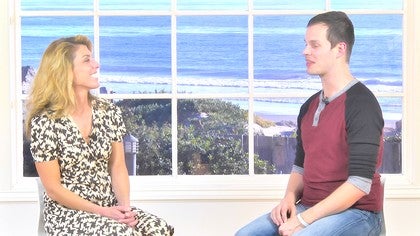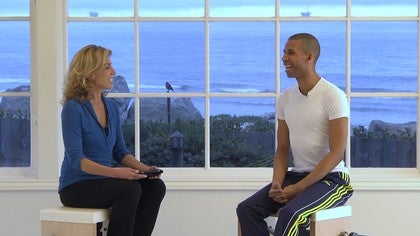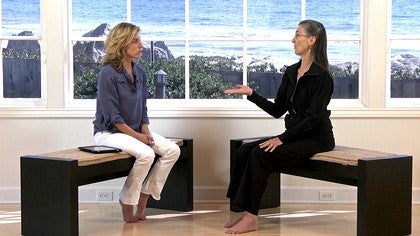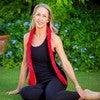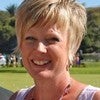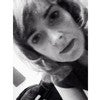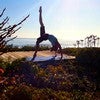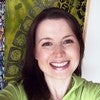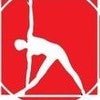Description
Kristi Cooper sits down with Ron Fletcher's protégé Kyria Sabin to learn more about Fletcher Pilates®, how Kyria became the director of the organization and of course, about Ron Fletcher himself. Listen in as Kyria shares her perspective on what motivated Ron to develop his work in the way that he did and why he believed exploring and taking one's body to new places in the studio was the key to learning to do so outside of the studio. We hope you'll enjoy this piece of the ever-expanding Pilates historical puzzle .
For a look at the history of Fletcher Towel work click here: Fletcher Towel Work
About This Video
Transcript
Read Full Transcript
Hello, I'm Kristy Cooper and today is one of my favorite kind of days at Pilati is anytime it's a day where we get to look further into our plotting history and to the legacy of Pele's. And maybe best of all for me today, um, get to know one of our most distinguished instructors. Curious Sabin. Kara is the protege of Ron Fletcher. She is the director of Fletcher [inaudible] and it's affiliated school, the Ron Fletcher Program of study. It's an absolute honor to have you here. It's been a long time coming from me and thank you for coming. Well, thank you for having me. I'm delighted to be here, right? There's a lot I want to ask. Um, and as always, my intention is to again, learn more about the history, learn more about Ron and most of all maybe learn about you and how he has influenced you and you continue to influence the rest of us. Um, I'll go into your background in a moment, but I want to start with,
You know, that's the hardest question. We actually have, um, bullet points. Next chart of phone because we all have different answers and it's really what pilates means to you individually. And that's the question. Yeah. Okay. Um, when, when I was first looking for a practice, a movement program, I looked into yoga programs. I looked into the Lottie Burke method and, um, and it wasn't until I was planning a move from New York to Los Angeles and a friend of mine said, you should check out holidays. You should check out the Ron Fletcher studio. And I'm thinking, okay, having no idea what I was getting into. And I went in and I took a session and, um, it kicked my butt. You know, it was, it was, it worked.
It was from the mind to the body. And, but it was, I knew that it was continuous and I knew that there was no end to it. Just from that first session, I just had a sense that there was so much exploration. Um, and I think that ultimately Pele's is a moving meditation. So it was, um, it wasn't, uh, I'm a movement person and I've always, I think some of us are just kinetic. And we just, our movement people. And I was, I had a hard time getting centered through, through being still. And I think that through this work I've learned how to be still through movement. Um, so it's, it's really, for me, it's, it's a moving meditation with, with a very set structure and very different than yoga.
And one of the, the differences I say is that Yoga, there's, there's this, um, spiritual and goal and I don't think that yogis would, would call it a goal, but spirituality is, is what a yoga practice about. Whereas with Poloniex, I think it's very much a physical practice and spirituality is the end result once you've been practicing for many years. That's great. So you're an explorer. Well, I, um, I'm not satisfied easily.
Um, so Michael Podwell was there, who I'm sure you've heard of that. And Diane Severino who took over his studio and Saber Blacklock was apprenticing at the studio. She's an amazing teacher in Denver. And she actually gave me my first session and she's now a dear friend, um, and one of our teachers in the company. And, um, and I took the session and I just, I ended up living at the studio. So every day after work, um, I was directing an art gallery at the time. And, um, Saturday mornings I took Diane's class, which was really hard.
So I landed in the right place. Yeah, I'd say so. Maybe, or I believe in luck. Um, so when did you finally meet Ron? Well, um, I had heard about Ron. He was the guru and he was, you know, he, he showed up in Los Angeles every once in a while. And, um, I heard that he was teaching a workshop in Denver. And so I decided to, um, go to the workshop and I had no idea, you know, it's just, Oh God, a bronze workshop. And by the time, you know, the trip actually came around, I thought, what have I gotten myself into? Um, and so I went to Barbara Huttner studio in Denver and, and, um, it was a three day workshop and he was, he was just around 70 at the time. I met him around 70 and, um, was studied with him for about 20 years. And, um, it was, I just remember everything about that weekend, you know, it was one of those life altering moments where you remember what the boom look like. I remember the smells. Um, I remember the people, the faces, uh, the butts, well, I don't know, Ron would always say, look at that bud. Um, and I just, I, it was, it was just, it was a life altering experience. And I, and I knew at the time that it was really special.
And halfway through the workshop, um, Ron pulled me aside and I thought, oh, no, one of my job, um, my foot wasn't pointed enough. I like wasn't straight and I've surely I've done something wrong. Right. And, um, he pulled me over and we talked for a while and it was just this wonderful, easy conversation. He wanted to get to know more about me and my background and he loves that I had a background in art because I don't know, he has, he had a love for art. Um, and so that led to him, um, telling me that he thought that I should explore teaching this work. And I had no intention of teaching this work. I, my trajectory was to go to law school and I was planning to focus on art law and I was hoping to be in house counsel for a museum.
And then I was on a completely different path. And, um, but there was something inside me that just jumped for joy. And I thought, really, you think I could do this? And I think that he saw something just in, um, well he saw something and made sure and um, that was a huge gift. Wow. And that one conversation led me on a path that I am still very much on now. It's wonderful speaking to the fact that you didn't really want to become a teacher or that wasn't your intention. I've heard you say that you reluctantly decided to become a teacher. Um, what was, what, what was the reluctance about? Well, the reluctance partially was I didn't, um, from a practical standpoint, [inaudible] wasn't a profession. And you know, Polonius was something that happened in back rooms and in ballet studios and, um, in big cities and uh, and it really didn't have an established profession.
And so whereas physical therapy would have been more of a viable path. Yeah. I didn't, I didn't see what the path was. And so when I, when I really did start to think, okay, Ron, how do I go about this? Because there were very few, if any teacher training programs and certainly none in the Fletcher world. And it was all learned to teach by, by being an apprentice. Right. And Ron felt as Joseph and Clara did, I believe, and most of the originals that you learn by being in a studio for years and years and years.
And then one day you're asked to teach on the floor and then you become a teacher. Um, and I didn't have that luxury. And, um, and really the Los Angeles studio wasn't set up that way. And so when I started thinking about it and I, I, I, I called Ron and I said, how would I go about this? You know, what, what would be my path? Cause he's in Texas now. He was in Texas on the ranch in Texas. And he laid out a path for me. And he said, I'd like for you to learn this from Diane Sobrino and I'd like for you to study with this person. And she said, I want you to go to Denver and I want you to go through a period of time with Barbara Huttner. Um, and, and what he said is, this is what I want you to look for. And each of these people. Um, so, so basically he put together a program for me. And, um, what was so amazing in retrospect is when I opened my first little studio, um, and it was all through word of mouth. I had, you know, nine, 10 clients a day. Wow. And Ron was my mentor. Ron Fletcher was my mentor that just occurred to you sometimes or his will.
He said, these are the 10 pieces that you'll teach and I don't want you to teach anymore than these 10 pieces and you can, and these 10 pieces on the reformer and gave me a few pieces on the spine, corrector a couple pieces on the pedal pole. Um, we would do telework out on the balcony looking up the Catalina mountains. It was just beautiful. Um, but then when someone walked in the door and I really didn't know what to do with them. Yeah, I would, I would, I would say that and I would, um, call Ron and he would walk me through it and he would spend hours on the phone with me talking about it, really getting, and he was interested to know about these clients than when he came to town. He'd say, so how is he doing? And if he were there, people were there. It was such a gift. So, um, I had the most amazing teacher training program. I can imagine when you were speaking about him directing you where to go and Denver and so on. It's rather than a manual, you needed a map, you know, you had to go find the people and it's kind of funny to me.
It's obviously special relationship
Um, we held his 90th birthday party and she was sun. It was, it was an international conference. He taught. He taught at this conference five months before he passed away. And, um, uh, and so he really did pass the torch to me. Um, and I think he did. So knowing that it wouldn't become the curious Saban method and knowing that, that my vision of this work was, um, what he called a tapestry, a tapestry of teachers, a tapestry of, of experiences. Um, and one of my strengths is that I'm able to, um, pull people together. And one of the gifts that we have is that we have so many people who have studied directly with Ron and who have their own interpretations of, of his work and we're all what I saw say crayon playing creatively within the same box. And so we, we have, we do have a structure, we have a very set structure, um, but we're able to really explore the realms of that structure. Um, so each of our teachers, each of our faculty members have, has a slightly different expression of, of how to approach this work. And that's great because my expression isn't the only expression. Right.
And, um, I have several teachers in my studio who have been with me for, um, Deborah was here this weekend for up to 17 years. Um, another one 15 years in other one 13 years. And they've all studied extensively with Ron. And then we have our teachers in Singapore and Tokyo and, and um, and the east coast and the West Coast and Canada and South America. They've all studied directly with Ron. And so we have this community that's bonded together and they're, you know, there was a time when I thought, um, what happens when he stay longer with what happens? And, and, um, there was, you know, we could disperse, we could go to our separate corners and take what we learned. Um, but I think that we have this, uh, the program enables us, um, to maintain a community and to maintain our own authenticity within that community. So I don't know if that answers your,
Um, I think of the school first, I think, but then I also think it different than s then when I say fast [inaudible], um, which was also a school, but my understanding, and please correct me if I'm wrong, is that, um, Ron specifically developed, um, a program that was, was his own that was based on [inaudible], but that it is different. And I guess I would love to have it. Um, I'd love to know what the distinction is between Ron's working and PyLadies generally.
And what I wanted to do is really get the sense of of age gentry's lineage of Vermont as lineage of, of, of the different expressions of this work that were available. And it philosophies was still not very well known. And this is back in the early nineties. And um, so we went on several road trips and um, my, the end result of that was this huge comfort level that what I was teaching was as authentic and true to the source as it could possibly be. And [inaudible] expression of the work and Corolla's expression of the work. And um, and Kathy grant's expressions of work are there, there's such a solid core to what they're all saying that that brings an unifies them. And yet they each have very, very different expressions of the work.
And so, and from, from the Fletcher perspective, I mean obviously Ron is known for bringing the work to standing cause sometimes, you know, people dread going to going to his class because he would have them standing 40 minutes.
We teach all of the classical pieces with the exception of a few pieces that most programs have taken out. Yeah. Um, for liability reasons. Um, and we teach Fletcher versions of most of those pieces. And so as we were developing the program, um, Ron, we'd really like to include this piece. We feel that, um, how should we approach it if we hadn't seen him teach it recently? Um, there was a miscon conception that Ron didn't teach them at work and I had a conversation with him when we were putting the program together and he said, our students have to know them at work. Then that work is the precursor to my floor work. And, and, um, and it's also, there's a certain mantra to the mat work, you know, there's a certain beginning, middle and an end. And so, uh, we included in that work, we have all of the equipment work and then the, the, the, the differences are, is that Ron really did look at each piece of movement and say, okay, what's missing? What, what really needs to be sad within this piece of movement? And so he would add breath to emphasize that, um, the percussive breath technique is different. And that's, um, 20, 30 years in development. There was a lot of thought that went behind that. It's not just about the sound. I'm bringing the work to standing, taking the work across the floor. Um, and then three techniques that we consider separate, um, techniques would be the flood true tell work the flood sure. Bar Technique, which is very much about organizing the lower body, different than a lot of the bar work that's being shot now. Um, and then the Fletcher floor work, which is really taking the plots principles and I'm looking at the ground floor work.
So there's always a y. Um, and, um, and I think that there was a misconception for years that run was just trying to make the work
So it's not just let's get through your day and make sure that you get through pain-free, but let's explore things here so that you take this and explore things out there. Lovely.
Um, the other thing that that comes to me is, um, just in terms of the joy and the spirit of the movement, um, one of the last things that run said to me, it was at a dinner party and he said he know curing I think of movement in circles. And I don't, it's one of the things that's always bothered me about, uh, you know, classical pilates that it does. There is, you're saying this or he's saying this, saying this. Okay. And so there's this, there was this roundness to the way he envisioned hoop and, and he brought that into his teaching. And I think that roundness, and it's, it's, um, something that you hear people get out of Gyrotonic. Yes. But that that roundness led to more freedom, you know, it led to more, more exploration of space rather than working within the confines of, of a Mat. Um, but always with discipline. Lovely. I feel like I'm getting to know him quite well, but I wonder what do you think he would want people to know about his work and him? Or have we accomplished that? I want to make sure that that gets out there. Well, um, I think if the first thing he would want to know is how much he respected his teachers and especially Clara. Um, he, he, one of his missions was to make it known that Clara was his true teacher. Yeah. And when he was recovering from his alcoholic days, Clara was part of his recovery. Um, and so just, and, and the importance of, of being in study, um, so whether you're studying the Fletcher work or, or something else to really consider this a static, it's, it's, um, it's physical therapy. It's exercise, it's movement. It's, um, many disciplines that come in and into line.
Um, I don't know. I think that he would say, put your blinders on. I'm, I'm just thinking in terms of advice that he would give to students. There's, there's so much noise out there and once you find a good teacher, you stay with that teacher and really learn. Um, he would also, uh, I think want us to know that w to trust our bodies, um, to, to not have, uh, information about our bodies super imposed on us because we now we now, um, yeah. And to make it about movement, you know, to really come from a place of, of exploring movement, of feeling the body. Um, he oftentimes had students touch their bodies saying, it's okay to touch your bodies and take up your space, you know, take up your space that, yeah, I'm sure I got it from him somehow down the line, you know? Yeah. He would say, don't be a nebbish Ooh, yeah. Take up your space and freeze and to really focus on the breath and to make the breath inspire the movement literally leaves. Yeah. When whenever I get to talk to people like you who have connection, so in so close to someone like Ron, you know what we always call an elder or first-generation. Yeah. I really appreciate hearing what you just said about him wanting it to be a study. And I hear that in the name of the program and Ron Fletcher Program of study.
It's there and so I would love to know how that came about. He actually named the program, he said it will not be a teacher training program. He said, we teach people, we train animals and um, uh, he was really reluctant to, to put out a teacher training program because he, he felt that the most of what was being put out as teacher training programs and at the time when we were discussing it, um, uh, we're too short or we're being taught in modules and he felt that it needed to be a more holistic approach, that there needed to be more of an apprentice. Do you mean like this piece of equipment, that piece of equipment that's, and sort of trying to piece it together and understand how they all as he would say, spelled weather. Okay. And, um, and so what he said is if several of my senior teachers can get together and we'll get together and come up with some sort of a consensus about what this looks like, then all sit down and consider it. And so we did, we, we got together, there were four of us at the time and, um, we, we came off what was, it was a marathon of that weekend meeting and not a lot of disagreement. Um, uh, but one of the things we realized is that there's so much, we have the classical work, we have bronze interpretations of the classical and the techniques that he brought to the table. And, um, so I said, well, why don't we organize it in terms of a 12 step program?
Because he was in AA and 12 steps where there's something magical about the number 12. And, um, and so what we did is we pushed all of the, the program into these 12 steps. So we have 12 steps at level one and it goes up to 24 in level two. Oh Wow. And, um, so we have 12 to 24 steps on the, on the reform or the Cadillac in the chair and all the different. And, um, and we began developing it. At first it was just taught in Tucson, in boulder. And, um, then through changes that have happened in the company and through a real demand for this work around the world, um, we decided to, uh, allow or actually license certain people who had been in study with us for years to become faculty members. So they had to be in study for at least seven years and teaching this work.
And then we have facilitators. So now we have campuses in Singapore, in Tokyo. Um, we have a faculty member in Melbourne and uh, Bogota, Colombia and Brazil and five in the United States, two in Canada, one in the UK, one in Europe. And, and my goal is not to grow the program much beyond this. Um, and what's wonderful is, is that the people who are representing his work all had contact with Ron. That's nice. Um, they all have his essence and we formed this worldwide community that didn't exist before. You know, we would get together for workshops, but we didn't have a real reason for staying in touch with one another.
And the whole communication around developing teachers and really developing teachers. Um, so we have a prerequisite program, the actual program that a mentoring program after the fact and uh, you know, as, as most programs good programs do. Um, but there's, there is, we have a unifying passion, which is nice that everyone has contact or had contact with him or perhaps, or you had some
And I wasn't even sure if, if he would get out of bed to meet with this guy and he happened to be Kinda cute.
We're going to tell everybody no, that would be an absolute honor. I mean it truly is a big part of our mission, which is to teach Pele's but I say it over and over. That is an absolutely includes our teachers. Um, you being mine. I did get to meet him but not enough. So I'm gonna keep trying to learn about him through you and through your own, um, essence and delivery of his work. Um, is it at the PMA this year to pay me this fantastic. The opening ceremony.
Fantastic. Um, well we'll look forward to that and I so appreciate you being here and telling us to what you can and maybe we can talk more cause I know there is a lot more. I look forward to it. Thank you. Thank you.
The Teacher's Corner: Discussions
Comments
Check out this Fletcher Pilates® page to help you find a qualified Fletcher teacher in your area.
Fletcher teachers and licensed providers
You need to be a subscriber to post a comment.
Please Log In or Create an Account to start your free trial.
